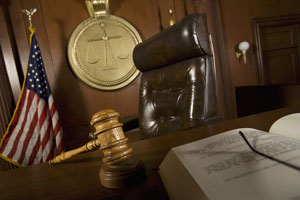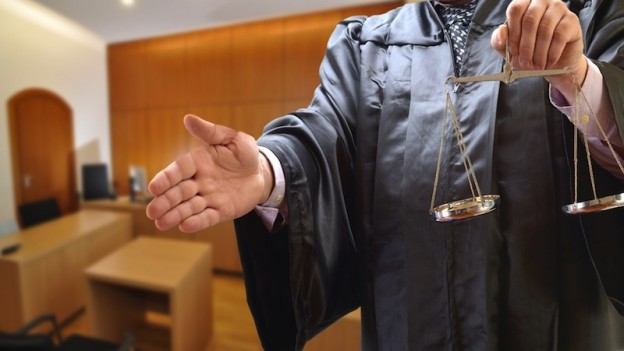It’s rare that cases involving expert witness testimony make it all the way to the United States Supreme Court, and rarer still that such cases raise fascinating issues of interest to the public as well as lawyers and experts.
James McWilliams was tried in Alabama in 1986 for the 1984 rape and murder of a convenience store clerk. His court appointed lawyer asked the trial court to appoint a mental health expert* to assist them because McWilliams appeared to have psychiatric problems that could impact issues of guilt and sentencing.
Court Appoints Single Expert for Prosecution and Defense
Despite the biblical warning that no one can serve two masters, the judge trying the case appointed a single psychiatrist to serve as the expert for the court, the prosecution, and the defense.
A jury found McWilliams guilty of the crimes after a trial. At the sentencing phase of the original trial, the prosecution argued that the judge should impose the death penalty, presenting three aggravating circumstances it argued warranted the death penalty. The defense tried to establish as a mitigating circumstance that McWilliams suffered from a psychiatric condition that the judge should take into account when imposing the sentence.
A report from the court appointed psychiatrist, presented to the defense just two days before the sentencing hearing, stated McWilliams suffered from organic brain disorder and had genuine neuropsychological problems. However, based on a report from prison mental health workers, the trial judge concluded McWilliams had been faking, was not suffering from a psychiatric condition sufficient to warrant a lesser sentence, and sentenced McWilliams to death.
Two Is More Expensive Than One
After a series of countless appeals and motions in numerous state and federal courts, the case was argued on April 24, 2017 in the United States Supreme Court. The central issue: Is a criminal defendant in a capital case entitled to have a mental health expert separate from one appointed by the court for the prosecution?
One factor lurking in the background is, of course, the issue of cost. At the oral argument, recently appointed Justice Neil M. Gorsuch said he was worried that a ruling in Mr. McWilliams’ favor would open the door to all kinds of court-appointed experts, saying “Where’s the stopping point?” “Is it just psychiatry? Would we also have to apply the same rule in other kinds of medicine, perhaps? Forensic science?”
Justice Gorsuch also noted “Experts widely disagree on everything,…. That’s why you hire them. And why they cost so very much.”
Hiring a separate psychiatrist likely would have been relatively expensive. Based on the most current data from ExpertPages 2016 Expert Witness Fees & Practices Survey, the average nationwide hourly rate charged by physicians (including psychiatrists) is $458 per hour, while non-physician mental health experts (such as psychologists) charge an average of $308 per hour. The average assignment for both categories currently costs a bit in excess of $6,400. As the state would have been paying the bill because McWilliams was indigent, clearly that is a factor that impacts the willingness of judges to appoint independent experts. Yet with the decades of post-conviction legal work and appeals that resulted because he did not allow the defendant to hire a separate expert, the trial court’s failure to provide one for McWilliams undoubtedly cost the state of Alabama many times more in legal bills than what an expert witness would have charged.
Expediency of Limiting Cost Should Not Outweigh Constitutional Requirements
Having served as an expert on both civil and criminal matters, I know from personal experience how vital it can be for each side to have its own independent expert provide input to enable the lawyers to develop a case as well as testify. Experts sometimes become a de facto member of the litigation team, and assist the lawyers in terms of strategy and tactics, even if they don’t testify. That’s not going to occur when there is a single expert appointed by the court.
While a court may be interested in what a presumably totally impartial expert would have to say, and such an expert might assist the judge to better understand the issues and sift through the parties’ experts’ reports and testimony, basic human nature suggests a joint expert is unlikely to help both sides present their own optimal case. Further, it’s wholly inconsistent with the adversarial system of justice.
Certainly a shared expert would be far less expensive than multiple experts. As a taxpayer, I appreciate how judges might be loathe to spend precious state resources on psychiatrists and other experts for criminal defendants who lack the financial resources to hire lawyers and experts on their own.
As a lawyer I would find it hard to imagine how the same person who was also working for the other side could adequately assist me in the “evaluation, preparation and presentation” of my case.
As a former prosecutor, I fully subscribe to the concept that no responsible prosecutor should ever bring charges or prosecute a person unless the prosecutor is personally convinced as to the defendant’s guilt and also is of the belief that the evidence is sufficient for a reasonable jury to convict. Prosecutors are there not solely to obtain a conviction, but to see justice done.
Prosecutors bridle at delays, and many judges come from the ranks of former prosecutors. Yet to maintain our system of justice and assure basic fairness, we have to do far more than a character in Joseph Heller’s brilliant Catch 22, a satirical novel set during World War II, suggested: “I know what I’d like to do with him. I’d like to take him outside and shoot him. That’s what I’d like to do with him. That’s what General Dreedle would do with him.”
Fortunately for criminal defendants nationwide, the prosecutor’s wishes are not the last word. The United States Constitution – as interpreted by the United States Supreme Court – controls. Thus the Supreme Court’s decision in the McWilliams case is likely to have a major impact on both the criminal justice system and the availability and use of experts nationwide.
* The request for appointment of a mental health expert was pursuant to a 1985 decision of the United States Supreme Court that ruled that an indigent criminal defendant is entitled to meaningful expert assistance for the “evaluation, preparation and presentation of the defense.”





